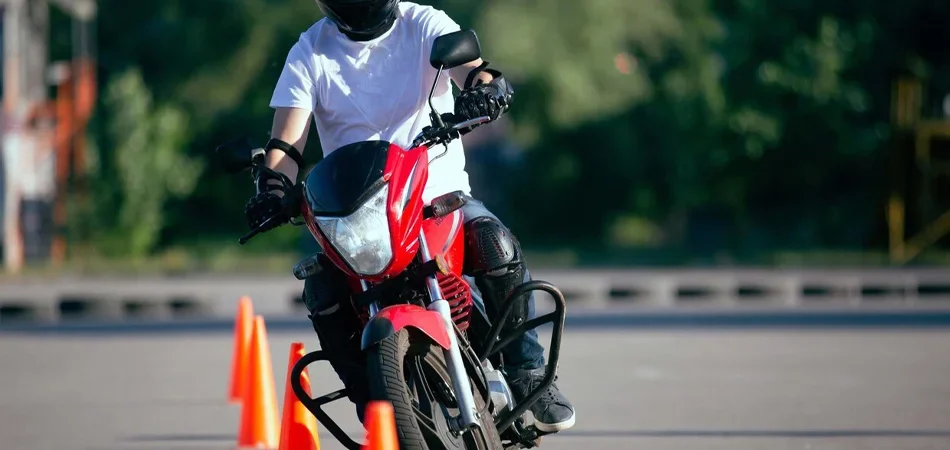Motorcycle safety: Avoid the lane-change collision

If you’re a motorcycle rider, you’ve undoubtedly experienced this one: you’re riding along and, while you’re briefly in the blind spot of a vehicle a little bit ahead of you, the driver decides to move into your lane.
If you’re lucky, you safely brake or move over, or the driver sees you with enough time to make a course correction. Since this type of situation is so prevalent, and since we can’t control the drivers around us, how do motorcyclists avoid a lane-change collision?
Tips to prevent lane-change collisions on a motorcycle
1. It seems obvious to say, but it’s important to be aware, at all times, that motorists have blind spots. There are some areas that they won’t be able to see when they’re looking in their side and rearview mirrors. It’s vital, as a motorcyclist, that you be aware of where these blind spots are. And, once you know where they are, you need to avoid them.
If you have to pass through a blind spot, don’t linger. It’s when you linger in the blind spot that a driver forgets about you and accidents happen. Even if you see a driver’s eyes in the rear or side mirror, don’t assume that he or she can see you and won’t accidentally hit you.
2. Look out for circumstances that could lead or force a driver to change lanes. Perhaps there’s a slow-moving car ahead. The driver in front of you might change lanes to maneuver around it. Perhaps two lanes are merging together, or a lane of traffic from another roadway is merging into yours — or it’s an interstate off-ramp. Watch out in these areas for an unexpected lane change and be certain that you give drivers a lot of space so they won’t change lanes into you.
3. Finally, be on the lookout for activated turn signals, visibly turning wheels, a driver checking mirrors, looking behind, or moving one’s head like he or she is about to change lanes. This will help you stay alert to what traffic is about to do around you.
Here’s the primary rule of thumb: Don’t be where other drivers want to be.
If you do get hurt in a lane-change collision
Motorcyclists who get hurt due to no fault of their own in lane-change collisions may want to study up on their legal rights. A deeper understanding of personal injury law could help you obtain full and fair compensation for injuries that happened as a result of someone else’s negligence.



